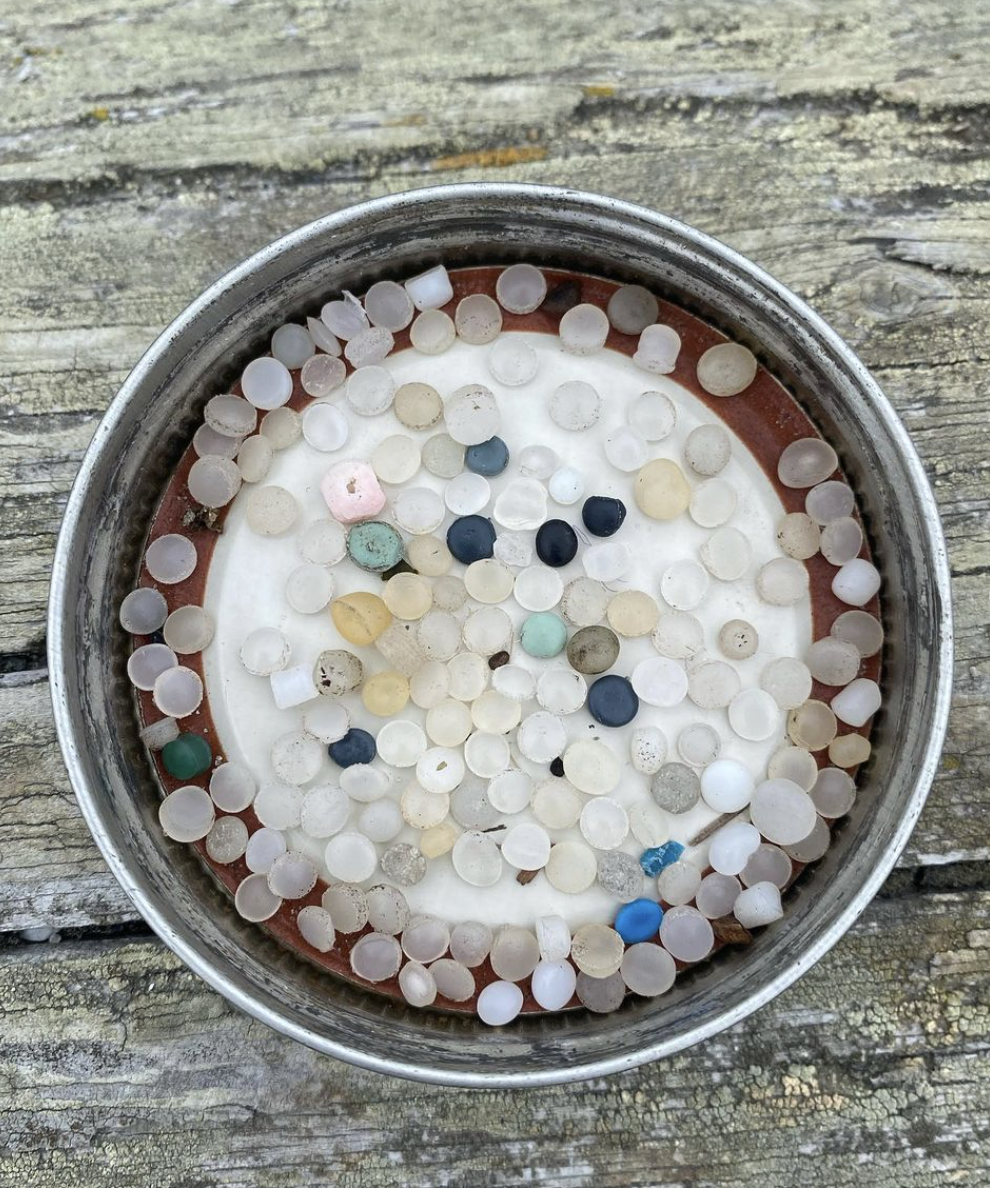A Ghostly Coastal Problem: Plastic Pre-Production Pellet Pollution
At a ReSurf Program event, Neil McQueen excitedly walks up to us with a Surfrider Foundation hat on, and introduces himself as the Co-Chair of the Surfrider Coastal Bend Chapter in Texas. In these moments, it’s a feeling of instant camaraderie, as our Surfrider network is global and when we travel - there’s a chance we’ll find community amidst fellow Surfrider ocean and coastal protectors. It’s also a moment of mutual understanding of the issues that plague the places we love and depend on. With Neil, we dive into the rampant spills of plastic pre-production pellets in Texas, and how a parallel scenario is playing out in Canada and across the globe.
Pre-production pellets might look harmless: small, translucent lentil sized beads scattered along the tide line. But these little pellets, known as nurdles, are the raw material for nearly every plastic product on the planet. From water bottles to food packaging to massive oil pipelines, nurdles are the building blocks of our plastic age.
The problem? Millions of them never make it to the factory floor. Lost during shipping or spilled at manufacturing sites, they escape into rivers, lakes, and oceans. Once adrift, they act like tiny sponges, absorbing toxic chemicals from the water around them. To fish, seabirds, and marine mammals, nurdles look a lot like food, who consume them unknowingly of a toxic cocktail. Nurdles are the second greatest source of microplastics in the ocean.
For coastal communities, nurdles often wash ashore by the millions. The result is not just an eyesore but an environmental hazard that local people are left to clean up. What seems like a small spill of plastic pellets adds up to a global crisis, one tiny bead at a time. In Texas, there are at least 35 plastic production facilities, and volunteers have collected millions of pellets along Gulf beaches since 2018. Neil shares the story of Diane Wilson, a Texas shrimper and environmentalist who secured a $50 million penalty against Formosa Plastics for its illegal discharge of nurdles into surrounding bays. To this day, reporting suggests that Formosa is subject to ongoing violations of pre-production spills.
Since 2018, Surfrider Canada has also been monitoring releases of nurdles from plastic facilities, and from our research, we’ve found direct evidence that plastic pellets are entering the marine environment from plastic production facilities in British Columbia’s lower mainland, particularly along multiple arms of the Fraser River. These pellets wash up around BC’s coastline, including the beaches I walk and surf daily in Tofino. Despite the evidence of nurdle pollution in BC, and in other parts of Canada including the Great Lakes, there is still no legally binding regulation in Canada to address nurdle pollution.
Surfrider Canada President, David Boudinot, holding nurdles from Surfrider’s monitoring and cleanup efforts
Like any issue, we have the agency to take a stand and secure solutions. October is the Great Nurdle Hunt held by the organization Fidra, which is focused on the cleanup of plastic pre-production pellets, and calling for regulations to address pre-production pellet spills across the entire supply chain. At Surfrider, we’re calling on the Government of British Columbia to reduce the risk of plastic pellets (nurdles) escaping into the ocean by having the Minister of Environment and Climate Change Strategy create a legally binding code of practice under section 22 of the Environmental Management Act. This code should set clear requirements for the plastic pellet industry, in line with international and federal best practices. You can contact your provincial MLA to ask them to support this legally binding code, as well as conduct your own nurdle cleanup and report the data to Surfrider and the Great Nurdle Hunt. We also recommend calling the BC RAPP Line to report the nurdles you find, who file a report under the Ministry of Environment and Parks. I just called to share the nurdles I picked up on Combers beach, which took a total of a few minutes.
We also recommend that the Government of Canada adopt and implement the key policy measures identified by Fidra:
A legislated supply chain approach, requiring all those handling pellets to prevent pellet loss at all points throughout the global supply chain. This requires robust standards, certification schemes with third party audits and a public register to communicate compliance all backed by legislation and enforcement
Classification of pellets as hazardous to ensure safer stowage and packaging of plastic pellets to prevent spills at sea and during transportation
Mandatory reporting of plastic pellet spills at all points along the supply chain
Protocols and compensation in place if spills do occur to ensure a swift response and that the polluter pays
National legislation and enforcement, which will ideally also be captured in a Global Plastics Treaty, which is still in progress. We also need a global cap on plastic production, which will lower the amount of nurdles manufactured and thus spilled.
So, if you’re looking for an autumn activity and want to get into the Halloween spirit, we recommend scouring shorelines for ghostly pre-production pellets that haunt the shorelines. Like every coastal victory we win, through collective action, we can put an end to pre-production pellet pollution!


